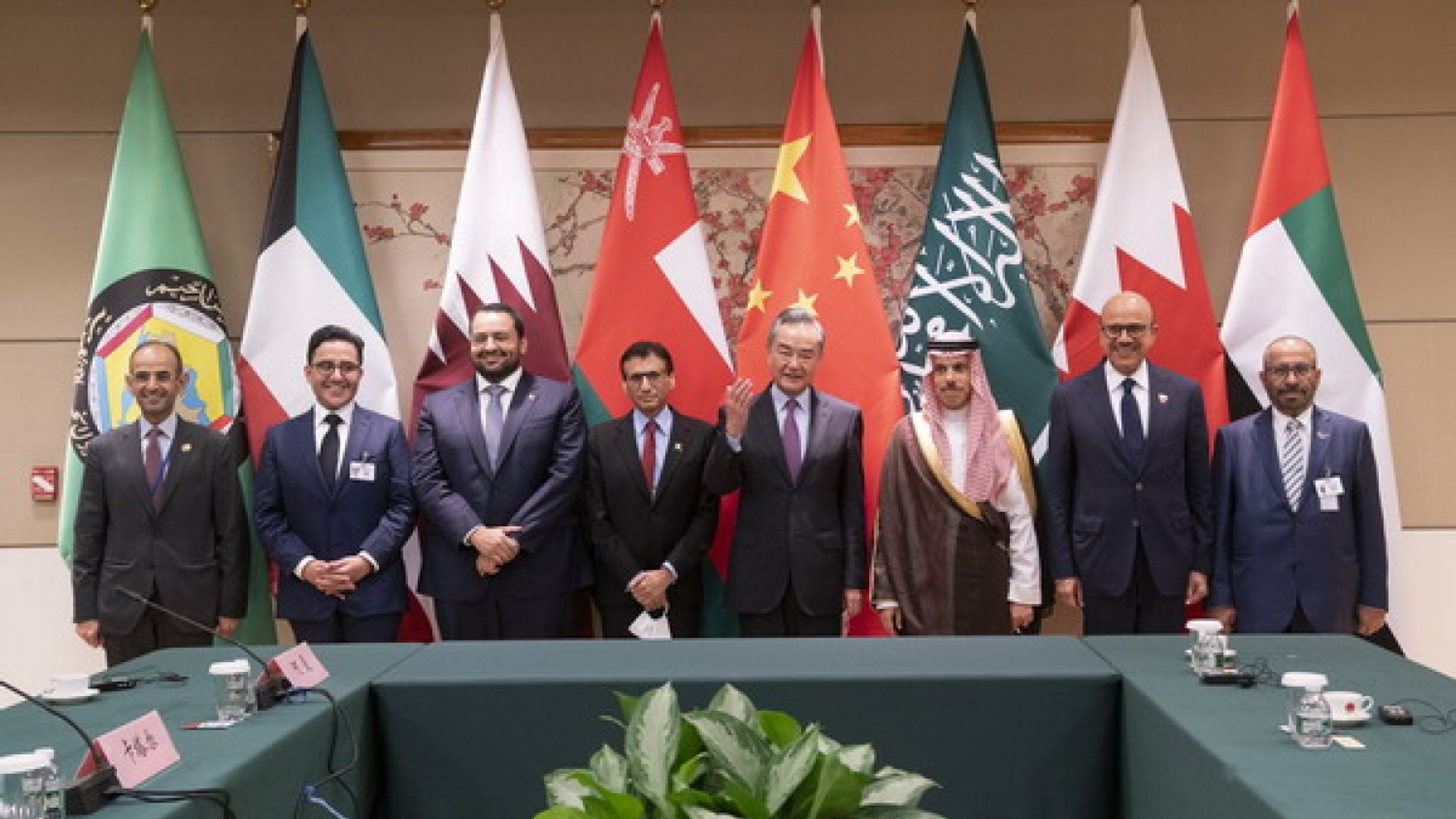China, Gulf Cooperation Council Agree to Join Efforts on Food, Energy Security
Subscribe
Meeting on the sidelines of the United Nations General Assembly (UNGA) in New York on Tuesday, China and the Gulf Cooperation Council (GCC) reaffirmed their efforts to ensure food and energy security as the prices of both continue to rise.
“The GCC anticipates a bright future for its ties with China and is willing to consolidate mutual trust, deepen pragmatic cooperation in all areas to ensure the security of food and energy and that the supply chain is stable, and face global challenges together,” the GCC was quoted as saying in a Chinese Foreign Ministry report on the meeting.
Speaking to the delegates from the six monarchies that border the Persian Gulf, Chinese Foreign Minister and State Councilor Wang Yi said that China has been the GCC’s biggest trading partner, with trade between them growing by 44% last year. The bloc includes Saudi Arabia, Kuwait, Bahrain, Qatar, the United Arab Emirates, and Oman.
“Pragmatic cooperation between the two sides in various fields has been fruitful, and cultural exchanges have become increasingly close, making China-GCC ties an example of cooperation between China and developing states,” he said.
Arab powers are also coordinating their own responses to the food crisis, which has seen prices increase at remarkably fast rates, due in part to interruptions caused by the Ukrainian crisis but also inflation connected to the COVID-19 pandemic. Egyptian President Abdel Fatteh El-Sisi hosted a meeting in El-Alamein last month, and Cairo began nationwide power conservation efforts to limit its use of foreign currency reserves it needs to buy grain abroad, as much of the Arab World does.
According to the readout, the meeting also included discussions of Iran’s nuclear power program and the Saudi-led coalition’s war against the Houthis in Yemen.
Long known for being a fair broker that doesn’t pick sides in regional rivalries, China has cultivated a relationship with both Iran and the southwestern Asian Arab states, especially in the economic sphere.
For example, in March, Saudi Aramco signed a deal to work with China’s North Huajin Chemical Industries Group Corporation and Panjin Xincheng Industrial Group to build a massive integrated refinery and petrochemical complex in Panjin, Liaoning Province. The facility will be able to produce 300,000 barrels of oil per day and will have a 1.5 million metric ton-per-year ethylene cracker and a 1.3 million metric ton-per-year paraxylene unit.
China’s purchases of Saudi petroleum have declined slightly, by 0.3% this year, according to OilPrice.com, although that is largely because China’s total oil imports have declined through 2022. Instead, China has become an increasingly large seller of petroleum products, especially liquified natural gas (LNG) bought at a discount from Russia, but also LNG bought from Qatar.
China has also kept up its purchases of Iranian petroleum despite the US’ sanctions that were reimposed after Washington unilaterally quit the Joint Comprehensive Plan of Action (JCPOA) nuclear deal in 2018. And, at the Shanghai Cooperation Organization (SCO) summit earlier this month in Samarkand, Uzbekistan, Tehran was formally welcomed into the Eurasian bloc.
Wang also said on Tuesday that their cooperation would include infrastructure projects under the aegis of the Belt and Road Initiative (BRI). The GCC countries have been listed as BRI partners since its inception a decade ago, but haven’t been a major focus thus far.
According to the Financial Times, Beijing and Riyadh reached $5.5 billion worth of BRI investment in the first half of 2022.




